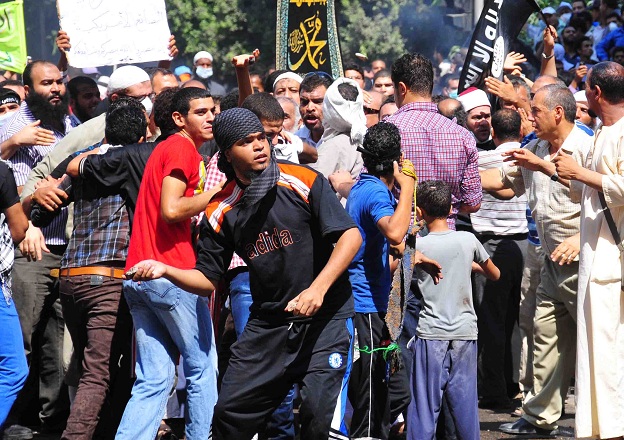Ethiopia has called upon the African Union (AU) to host a meeting with the three parties involved in the Grand Ethiopian Renaissance Dam (GERD) negotiations, to break the deadlock.
Early in April, Egypt officially announced the failure of the latest round of negotiations on the Ethiopian dam, which were held in the capital of the Democratic Republic of Congo (DRC), Kinshasa, on 4-5 April.
In a letter to Sudan’s Prime Minister Abdullah Hamdouk, on Wednesday, Ethiopia’s Prime Minister Abiy Ahmed said that the way forward on the GERD negotiations is to request that AU and DRC President Felix Tshisekedi to hold a meeting of the AU’s Assembly Bureau.
Last week, Addis Ababa rejected a Sudanese proposal to hold a closed meeting for the leaders of the three involved countries, Egypt, Sudan, and Ethiopia, to reach a consensus on the disputed points.
Ahmed stated that the negotiations have seen some tangible results including the signing of the Declaration of Principles (DoP). Other success has been seen in the establishment of the National Independent Scientific Research Group (NISRG) and its work in relation to stage based filling schedule.
“Assuming the negotiation process as a failure is not right,” Ahmed said.
The Ethiopian Prime Minister added that his country “still believes that the best way forward is to continue the trilateral negotiation under the AU-led process to reach a win-win outcome.”
He noted, “If parties negotiate in good faith results are within our reach.”
Both Egypt and Sudan announced their intention to resort to the UN Security Council (UNSC). The move is aimed at preventing Ethiopia from taking any unilateral actions that may cause harm to the downstream countries.
In a statement on Tuesday, Addis Ababa called upon Security Council members to urge Egypt and Sudan to return to tripartite negotiations on the first filling and operation of the GERD. It said that this should take place “in the spirit of finding African solutions to African problems.”
Abbas Sharaky, Professor of Geology and Water Resources at Cairo University, believes that it is possible to reach a satisfactory agreement as a solution to the stalled negotiations. This could happen before Ethiopia proceeds on its way to the second filling after it dried up the middle corridor and almost put concrete to raise it.
Sharaky expected that the AU will call for a meeting of the technical committees and the three countries’ Water Resources and Irrigation Ministers in the presence of the observer committee from the EU, South Africa and the US, giving them a greater role to play.
Ethiopia previously rejected the mediation of parties outside the AU in negotiations, as Sudan proposed an international quartet, including the UN, the EU, the US, and the AU.


